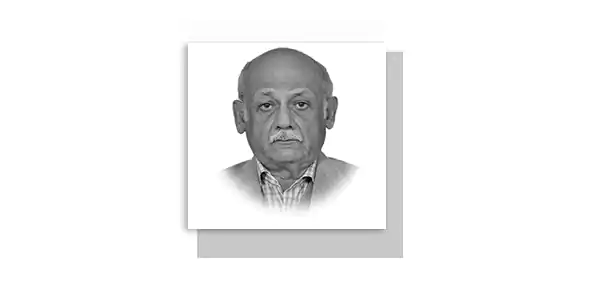Some are born great, some achieve greatness and some have greatness thrust upon them” Khan Abdul Ghaffar Khan known to the world as Bacha Khan or the frontier Gandhi perhaps the greatest proponent and advocate of non-violence has always been a very controversial, misunderstood and enigmatic leader in our political history, was definitely one born great.
He was the founder of a secular nonviolent movement called “Khudai Khidmatgar” or simply Servants of God in 1929.
Ironically this progressive, secular and nonviolent movement was started in a very conservative Islamic and violent Pashtun society.
He was fondly called Bacha Khan by his followers being a close follower of Mahatma Gandhi and was part of the All India Congress party.
He did not believe in the slogan of a separate country for the Indian Muslims and opposed the referendum which gave the people of the NWFP the option to join India or Pakistan.
His brother then Chief Minister of the frontier wanted a third option of an autonomous Pakhtunistan after the departure of the British from the subcontinent.
After the birth of Pakistan Bacha Khan vowed allegiance to the new country and took an oath of loyalty in the assembly in 1948.
He also tried to mend fences with the Quaid-i-Azam during a meeting in Karachi and invited him to visit the office of the Khudai Khidmatgar in Peshawar.
The meeting never materialized because the new CM of NWFP Khan Abdul Qayyum Khan sabotaged it by telling Jinnah that he will be assassinated if he came to the NWFP for that particular meeting.
The provincial Govt.of Ghaffar Khan’s brother was removed soon after partition and this resulted in estranged relations between Bacha Khan and the Govt. of the day.
By the end of 1948 Ghaffar khan was arrested without any charges and jailed until 1954.
He was again arrested in 1956 for protesting against the establishment of the one unit in West Pakistan.
He was kept in prison by the Ayub Regime until 1964 when he was released due his failing health.
Throughout his life the valiant freedom fighter Ghaffar Khan continued to struggle for full autonomy for his province and other provinces of Pakistan within the framework of a united Pakistan.
Such a demand and political struggle was totally against the prevailing concept of a strong center and was viewed as a traitorous movement and against the interests of a united Pakistan.
He was taken to Britain for treatment and then went into exile in Afghanistan.
He came back to the country in 1972 when the National Awami Party headed by his Son Khan Abdul Wali Khan had formed provincial Govts.
In the NWFP and Baluchistan.
Even this time his freedom was short lived as he was again arrested by the Bhutto Govt. in 1973 in Multan.
After his release he complained “I had to go to prison many a times in the days of the British.
Although we were at loggerheads with them, yet their treatment was to some extent tolerant and polite.
But the treatment which was meted out to me in this Islamic state of ours was such that I would not even like to mention it to you” The last political activity of Ghaffar Khan was the agitation against the building of the Kalabagh Dam which in his view would result in severe damage to the fertile areas of the NWFP.
Bacha Khan struggled all his life and was a passionate and dedicated advocate of peace and nonviolence.
He believed in accommodation, consensus and totally peaceful means for achieving the goals of freedom and welfare of the people.
He was not only a politician but also a great social reformer.
His life was committed to giving the younger generation of Pashtoons school books rather than fire arms in their hands, he preached accommodation, tolerance and abhorred the Pashtun tradition of vendetta.
This great proponent of nonviolence was way ahead of his times.
He was fully cognizant of the value of education and he persuaded the landed classes to open schools in the rural areas not only for boys but also girls should be encouraged to get education.
Unlike our leaders of today he set a personal ex-ample by sending his own children to the village schools.
We can only speculate what would have been the shape of the KPK or for that matter the whole country if Bacha Khan’s quest for education especially technical education had spread throughout present day KPK and the entire country?
A highly educated and productive workforce, which was one of the secrets of the massive growth that the East Asian tigers and China witnessed during their formative stages of development, would not have eluded us.
But that was not to be. We opted for the security-cum religious state paradigm forsaking making Pakistan a pro-ductive rather than a rentier state with a rent-seeking economy.
Yes, we came of age in a hostile environment but there have been cases of countries that faced existential threats yet kept a fair modicum of balance between transparent security, democracy and economic development.
Most of the difficulties we face today could have been resolved had investments in education and health proceeded hand in hand with productivity growth and manageable and affordable but firm security.
The phoenix rises only to remind.
The rest lies in our own hands.
—The writer is Professor of History, based in Islamabad. Email: tariq.aqil@headstart.edu.pk









